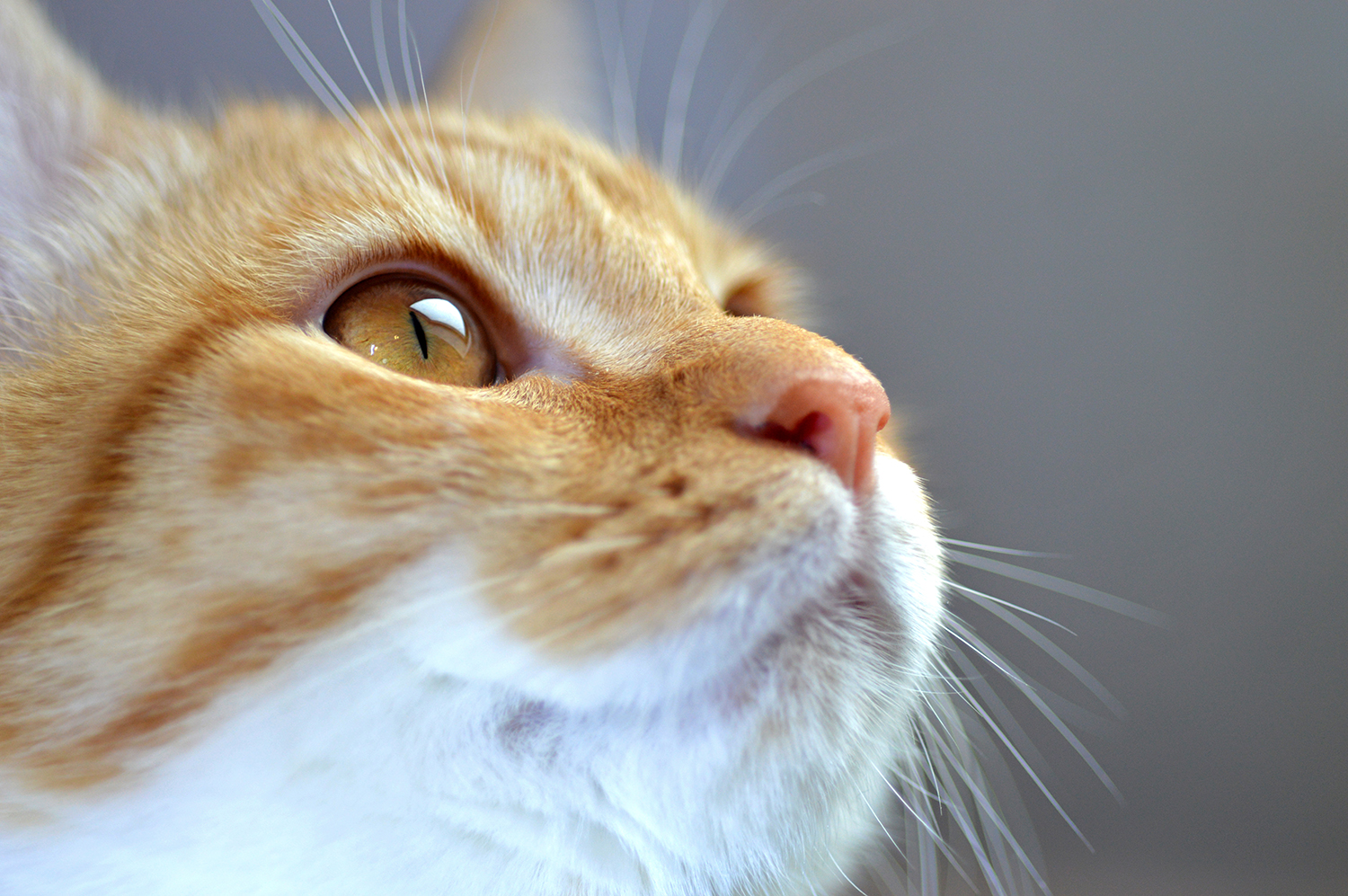When we lose a friend or relative, it is taken as a given that we will grieve, miss them, and then gradually adapt and accept (although never “get over”) the loss. Similar stages have been observed by many owners in dogs. However, cats are still something of an enigma to us – and they can often seem inscrutable, even alien. Can we project our emotions onto them? Do they even miss a companion, let alone grieve for them? In this blog, we’re going to explore how cats experience loss, grief and bereavement.
Do cats have emotions like us?
Without any reasonable doubt, yes they do. Their brains are organised the same way as ours, and there is no reason to think they do not experience similar emotional states to us. The old idea that animals were “mindless automata” (Descartes) that neither felt nor thought, but only reacted, has been solidly disproved by modern neuroscience.
However, it is worth remembering that although cats feel, they do not think the same way that we do, and so we cannot be certain that they experience feelings exactly the same way that we do. Unfortunately, there doesn’t seem to be any conceivable way that we could experience life as a cat does. However, it makes sense to assume that whatever emotions they are feeling is at least similar to what we do.
Do cats show altered behaviour if a companion dies or goes missing?
This is a slightly more complex question. Without a doubt, there are some cats who don’t bat an eyelid when their companion of many years dies. They carry on exactly the same as before (some studies suggest that about half of cats fall into this group). Does that mean that they’re emotionless psychopaths?
Not necessarily.
It is vitally important to remember that cat society is very, very different from ours. Some cats form close-knit family bonds and stay together, sharing a territory, hunting and living together for many years. These cats we might expect to show some signs of grief, and often they do.
However, for others, living in the same house as another cat is a hardship, and they work around each other by, for example, time-sharing the space, so they don’t have to be in the same room together. For such a cat, the one who’s died wasn’t a friend, relative, or even companion – he was a rival, a competitor, or even a mortal enemy. We shouldn’t really be surprised if the survivor isn’t at all unhappy at having one less cat in the house to work around!
What are the stages of grief in a cat?
In humans, there are some very well recognised stages of grief – shock, denial, anger/guilt, bargaining, depression and acceptance. It is possible that cats go through similar stages (although it seems unlikely that they feel the need for bargaining or experience guilt as we do), but we cannot know for sure. However, we can recognise three distinct behavioural phases.
- “Searching”. Initially, cats appear to search for their missing companion. They may call for them, or pace, or actively look everywhere in the house. Sometimes, they’ll look out of windows, or call through doors, trying to call the missing cat home. This phase usually only lasts a few days, but can be utterly heart-rending. Sometimes, this happens even if they’ve seen the body – so it may almost be analogous to “denial” in humans.
- “Depression”. Once they’ve accepted that their friend is gone and isn’t coming back, cats often become deeply depressed. They may stop playing, no longer hunt, stop grooming themselves, and even in some cases stop eating. This is particularly marked in more sensitive breeds such as Siamese, but can be observed in any cat. It can go on for weeks, and in extreme cases, the cat may actually starve themselves and need veterinary treatment to persuade them to start eating again. It is very hard to interpret this as anything other than grief.
- “Acceptance”. Eventually, however, life must go on. Even the most sensitive cat comes out of their mourning, and returns to their usual activities. In many cases, owners report a “transformation” as the cat undergoes a marked (and usually permanent) personality change, often becoming more interested in human company and play. This may be because they have adopted the humans in their house as substitute pride-mates, or because the relationship between them and the cat who died was altering their responses to other people, cats and situations.
These phases usually occur, but some cats seem to skip “Searching” or “Depression” almost entirely; for others, it may be prolonged for weeks or months. On average, though, the process takes a week or two.
Is there anything we can do to help?
It really does depend on the individual cat. If they seem quite happy, leave them be! Remember, your grief will communicate itself to them. However, if they seek you out for attention – give it to them. You can support each other through grief and out the other side.
If you need to talk to us about anything in this blog, please feel free to give us a call.





